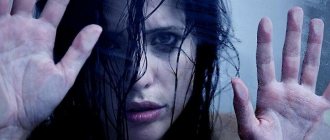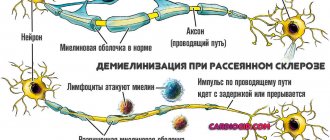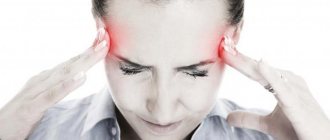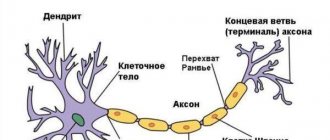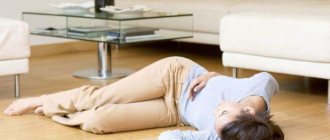- home
- Helpful information
- Elderly care
- Sleep disorders in older people
35% of older people have problems sleeping. The older you are, the more often such disorders occur. These may include difficulty falling asleep, waking up early, or interrupted or shallow sleep. A person may be disturbed by vivid, unpleasant dreams, he may experience fear of the night or dreams, and may not feel rested in the morning. Problems gradually accumulate: anxiety and tension increase, which makes it more difficult to fall asleep, and the period of night rest lasts less. To normalize the regime, you need to determine the reasons why it was violated.
Sign up for a consultation
The benefits and importance of healthy sleep in old age
Sleep is of great importance to the health of all people. It is especially important in old age, and here's why:
• Lack of sleep increases the risk of heart attack and stroke; • During the night's rest, the body recovers; • Sleep strengthens the immune system - insomnia weakens the condition of an elderly person; • Sleep maintains healthy body weight; • During sleep, blood pressure normalizes, this is especially important for hypertensive patients; • Sleep calms and relieves stress.
Insomnia can cause significant harm to both the physical and mental health of a person and aggravate his sick condition. Healthy sleep, on the contrary, promotes health and strengthening, so in case of disturbances it is important to restore it.
What diseases cause insomnia?
Factors contributing to the occurrence of insomnia in mature and elderly women include the following pathological conditions:
- Mental disorders. They arise against the background of prolonged experience of conflict and stressful situations. These include progressive severe depression.
- Neurological disorders. Insomnia in women over 60 years of age occurs against the background of dementia, deterioration of cerebral circulation, Parkinson's disease and traumatic brain injury.
- Obstructive apnea syndrome. Spontaneous respiratory arrests at night occur less frequently in women than in men. The main symptom of the pathology is snoring.
- Bronchopulmonary diseases. Insomnia occurs in patients suffering from bronchitis, bronchial asthma or chronic obstructive pulmonary disease. Pathologies are accompanied by breathing problems, leading to frequent awakenings at night.
- Gastrointestinal diseases. Insomnia is caused by attacks of heartburn that occur against the background of gastritis with high acidity or esophageal reflux. A strong burning sensation behind the sternum forces you to look for a comfortable position and prevents you from falling asleep.
- Changes in thyroid activity. An increase or decrease in the level of thyroid hormones negatively affects the nervous system, causing problems with falling asleep.
- Painful sensations. Muscle, joint and headaches are common causes of insomnia in women over 60 years of age.
- Rare diseases. These include restless legs syndrome, accompanied by severe pain in the lower extremities, central apnea, Pickwick's disease (severe obesity accompanied by impaired ventilation).
Causes
Insomnia is a systematic sleep disorder in which waking up, falling asleep, depth and duration of sleep are disrupted. In the elderly, there are two types of insomnia: transient (caused by stressful situations) and chronic (permanent, due to physiological changes in the body). Typically develops after age 60.
Insomnia is considered to be not only long periods of sleep and shallow sleep, but also frequent awakenings at night with a lack of vigor in the morning.
Chronic pathology does not occur quickly. It is preceded by long-term processes: the development of diseases, long-term stress, regular violations of hygiene and sleep patterns.
The causes of insomnia in older people are associated with a decrease in the production of melatonin (sleep hormone) in old age.
A decrease in this hormone is caused by:
• Experiences that make it difficult to sleep: thoughts about loved ones, illness, pensions, lack of funds, memories of the past; • Poor sleep hygiene: uncomfortable bed, light and noise in the room. For healthy sleep, you need a quiet and peaceful environment without light or noise; • Diseases: asthma, hypertension, tachycardia, diabetes, osteoporosis and others - you must be treated by a specialist; • Mental disorders: depression, anxiety, chronic anxiety, schizophrenia, neuroses, nightmares. Psychological problems may also arise: fears of poverty, death and others. Specialists will help a person cope with mental illnesses and serious problems. If an elderly person is experiencing a temporary problem, he needs someone to open up to and have a heart-to-heart talk with; • Chronic pain and fatigue; • Taking energy drinks and certain medications that cause insomnia. In this case, the attending physician prescribes the dosage or changes the treatment regimen; • Sedentary lifestyle and excess weight. The lack of physical activity can be compensated for by special exercises, regular walks, and household work; • Snoring, convulsions, trouble breathing. You need to contact a specialist to solve the problem; • Bad habits: violation of a healthy sleep schedule, drinking alcohol before bed, falling asleep while watching TV. Menopause and postmenopause in older women. These conditions can cause night sweats and hot flashes, making women's sleep interrupted. This sleep pattern may persist during postmenopause. Exercise and diet will help overcome the problem; • Lack of sunlight. Sunlight regulates the production of melatonin, so older people benefit from walking in good weather.
Epitalon - instructions for use, price
Epitalon is a peptide with numerous healing properties. Initially, it was created to prevent the development of tumor processes, but later it turned out that the anti-cancer effect is due to its strong anti-aging effect.
Epitalon is the only way to stimulate the body's production of melatonin without any side effects. There are studies that talk about an experiment involving older people. They were given injections with Epithalon at different times of the day, and then the concentration of the sleep hormone in the blood was measured.
Judging by the data given in the table, you can choose the most optimal time for administration, which will lead to sufficient levels of melatonin. Thus, subject to certain rules (time of injections and going to bed), you can achieve more complete night recovery and full sleep. It should be taken into account that the speed at which the effect appears will depend on many factors, for example: the state and characteristics of the nervous system, watching TV before bed, eating and others.
Instructions for using Epithalon are provided when purchasing the peptide.
Its price in Russia is significantly lower than in Europe, while the quality remains at a high level. Our online store, operating since 2013, has long established itself as a reliable seller selling only high-quality products, including Epitalon.
Typical sleep disorders
Insomnia can be associated with various disorders. The following are common in older people:
• Insomnia due to medication. For example, some drugs cause nightmares. Diuretics taken at night may cause interrupted sleep. Expectorants can prolong the time it takes to fall asleep. If you have such a problem, you need to tell your doctor about your sleep disorder. Perhaps he will change the treatment regimen or suggest a different drug. • Periodic limb movement syndrome. Sleep disturbances in the elderly may be accompanied by various leg movements during sleep. For example, a person periodically bends his big toe and the leg itself at the knee. • Restless legs syndrome. This sensation is similar to the feeling of running on a surface. Improving lifestyle and increasing physical activity help get rid of the syndrome. • Insomnia syndrome due to depression. The problem is accompanied by a feeling of emptiness, anxiety and early rises, after which the person cannot fall asleep.
Medication decision – which drug to choose?
There are drug and non-drug treatments.
The second type includes, first of all, sleep hygiene with simple rules:
- go to bed and get up on time;
- do not bask in bed for a long time;
- do not sleep during the day for more than one hour and after 3 pm;
- be sure to be in the morning light - scientists have concluded that this promotes the release of melatonin.
What causes sleep disturbances? Because the function of melatonin changes. We have a pineal gland that secretes this substance. It regulates sleep and wake cycles. Sleeping pills are produced that specifically affect the pineal gland and cause it to secrete melatonin, for example, Circadin.
This medicine is not addictive and does not have side effects like other medications that lead to muscle system disorders and relaxation in older people.
The drug gradually restores brain function. And if a person takes it for one to two months, it leads to natural night sleep without pills. Should be taken two hours before bedtime.
Despite the fact that these medications can be purchased over the counter, consulting a doctor is still necessary. There may be individual contraindications that the patient may not be aware of. You should resort to medications as a last resort, having first experienced all non-pharmacological methods of combating insomnia.
Types of insomnia
• Insomnia. A person cannot fall asleep for a long time, sleep is short. Often occurs due to stress. To solve the problem, you need to stabilize your emotional state. The treatment is carried out by a psychotherapist. • Parasomnia. Occurs during sleep phases. A person wakes up several times during the night. May occur due to sleepwalking, enuresis, fear, epilepsy. • Hypersomnia. A person needs a long rest: the need for sleep can be up to 20 hours. At the same time, the feeling of cheerfulness does not always occur. It often develops in people who experience stressful situations and do not get enough sleep.
Insomnia in old age must be treated, otherwise it can lead to serious consequences - chronic pathologies. For treatment, you can first go to an appointment with a therapist, who will give directions to the right doctors. A narrow specialist in the field of sleep is a somnologist.
The diagnosis involves a detailed examination and examination of the patient to identify the causes of insomnia. The Epworth scale can be used as a diagnostic method. According to it, drowsiness is assessed from 0 to 4. The patient is interviewed and, depending on his answers, points are calculated, which determine the nature of the problem.
The “sleep diary” is also used in diagnosis. The patient needs to fill it out for at least a week. The diary describes in detail the person's sleep patterns. The diary is filled out in the morning and evening hours, describing each day. Thanks to this method, the doctor receives detailed data about the problem and can better study the disease.
Effective folk remedies for insomnia for the elderly and not only
The main sleep hormone melatonin is found in dark, almost black cherries. Therefore, at night you should have a snack of ripe berries, which will help you sleep.
Another superfood that helps combat insomnia is walnuts. It contains the amino acid tryptophan. It is converted through a series of transformations into serotonin, which ultimately produces melatonin.
Scientists conducted a series of experiments, feeding a group of subjects kiwi. They gave two fruits before bed. It turned out that falling asleep improved by a third in all study participants. Scientists took the fruit apart and found that it is full of serotonin, a precursor to melatonin. There are many other effective folk remedies for insomnia for the elderly.
Patients are advised to walk more and be in the fresh air, especially before bedtime. The stress accumulated during the day thus dissipates and does not interfere with sleep at night.
It is often better to switch from insomnia medications to natural remedies. They are safer and non-addictive.
Insomnia can be avoided by drinking herbal infusions, decoctions, and tinctures of the following herbs:
- azure blue (blue St. John's wort, bran-grass);
- motherwort;
- valerian officinalis (cat herb);
- curly hops (common);
- extraordinary peony (Maryin root).
All these plants have hypnotic and at the same time restorative properties. They are drunk in the form of tea.
Of the listed herbs, the lead belongs to cyanosis, followed by motherwort. Both of these plants are 5-10 times stronger than valerian.
You can take them both at night and in the afternoon. Preparations made from them reduce agitation, tension, and promote normal rest after hard work.
Calming herbs also include:
- dandelion officinalis (field);
- linden flowers;
- St. John's wort;
- peppermint;
- tripartite sequence;
- marigold;
- wormwood;
- marsh calamus;
- arnica (mountain ram);
- oregano;
- thyme (thyme).
Tea made from them is pleasant and healthy, giving a restful and sound sleep.
You can also get a good rest if you make fragrant pillows with dry fragrant herbs:
- immortelle flowers;
- hop cones;
- mint;
- rose;
- oregano;
- male fern;
- laurel;
- hazel;
- pine needles;
- geranium.
You can dry them in the shade in the summer (do not overdry). Sew small pads from cotton fabric and put dry chopped grass into them.
Traditional medicine advises eating a piece of pie or muffin at night, and sleep will come. She explains this by saying that carbohydrates contained in sweet pastries contribute to the production of serotonin in the brain, which plays a huge physiological role:
- has a vasodilating effect;
- regulates blood pressure, respiratory function, renal filtration, body temperature.
Some other types of food also improve serotonin metabolism. If your mood drops or insomnia appears in the afternoon, allow yourself some chocolate, coffee or a banana.
The normal course of serotonin metabolism leads to the formation of a positive emotional background, a feeling of joy, interest in life, helps to be in good shape and have high performance.
This substance carries nerve impulses, participates in all processes of the central nervous system, without it the functioning of the brain is impossible. Improper serotonin metabolism causes not only sleep disturbances, but also serious illnesses such as depression, schizophrenia, migraines, enuresis and many others.
Treatment
Treatment is carried out using different methods: medications, traditional medicine, and healthy exercises. Insomnia needs to be dealt with comprehensively.
Medicines
Insomnia medications are divided into prescription and over-the-counter medications. Many over-the-counter drugs are made from plants, and they are not addictive, but they are weaker than chemical-based drugs. In any case, taking any medications in old age should be agreed with a doctor.
A good medicine for insomnia should have these properties:
• Help you fall asleep quickly and easily; • Maintain healthy deep sleep without interruptions; • Do not cause feelings of lethargy, drowsiness and weakness; • Have few contraindications and side effects, and are not addictive.
Prescribed by prescription: Pagoklon, Zaleplon, Suvorexant, Indiplon and others. The dosage is minimal and should not be exceeded; the medicine is taken once a day. Treatment usually lasts two weeks - this will help avoid addiction.
Popular over-the-counter medications include: Novo-passit, Valerian tablets, Persen, motherwort tincture and others.
Let's take a closer look at several remedies that are used to treat insomnia in old age:
• Melatonin. A drug that contains an artificially obtained sleep hormone. Improves sleep for different types of insomnia, helps correct the body's biorhythms. Not addictive. The dosage is prescribed individually, the course of treatment is up to 20 days. • Andante. Capsules with sedative, hypnotic and relaxing effects. Suitable for severe cases. Take before bed, the course of treatment is no more than two weeks. • Zopiclone (Imovan). A drug with a sedative effect. Suitable for different types of violations. Prolongs sleep, reduces the number of awakenings, and improves the quality of night's rest. Take before bedtime. The course of treatment is no more than a month.
• Donormil. Used to treat periodic insomnia. Makes it easier to fall asleep and prolongs sleep. Take half an hour before bedtime, treatment lasts up to 5 days. • Novo-passit. Contains extracts of seven beneficial herbs that calm the nervous system. Thanks to this, a person quickly relaxes and falls asleep well. Used for mild insomnia. • Motherwort Forte. Calms against severe nervousness and emotionality, suitable for stressful situations. One tablet is taken in the morning and evening. Use with caution for people who have stomach problems.
Antipsychotics (for mental disorders) and antidepressants (for depressive conditions) may also be prescribed. Since older people have a slower metabolism, the doctor selects small dosages for them.
Hypnotics - sleeping pills - are often prescribed. Based on their duration of action, they can be divided into three groups:
• Medicines with a short duration of action – up to 6 hours. They relieve anxiety and facilitate the process of falling asleep; • Medicines with an average duration of action – up to 12 hours. These remedies help you fall into deep, uninterrupted sleep; • Long-acting medications – longer than 12 hours. Such drugs qualitatively improve sleep in old age. But they also have a side effect - drowsiness even after waking up.
Older people tend to wake up early. In such situations, medications with short-term effects will not be helpful.
Severe insomnia often accompanies dementia. The person cannot sleep at night, but experiences drowsiness during the day. In this case, a special approach to treatment is needed: a specialist selects funds and prescribes a course. You can only change your daily routine on your own so that a person has an active day and wants to sleep in the evening.
Insomnia medications can vary in strength and duration of action. Drugs that are acceptable in some cases are prohibited in other situations. Some drugs have serious side effects, negatively affect overall health and are addictive. Therefore, a specialist should prescribe medications and their dosage. Do not self-medicate.
ethnoscience
Folk remedies are a good and effective addition to traditional medicine. In the fight against insomnia, herbal preparations, decoctions, teas, and honey-based products are actively used.
Several recipes to choose from:
• Dissolve one spoon of honey in a glass of warm water or milk. Drink at night. • Pour one glass of bran into 100 ml of water, add 100 g of honey, mix everything. The mixture is taken 2 tbsp. l. during two months. • Mix equal amounts of calendula, motherwort, and thyme. Each time use 10 g of the mixture, pouring boiling water. The infusion takes 15 minutes to prepare. Add a spoonful of honey to the finished drink and drink before bed. • Mix valerian roots (5 g) and oregano (10 g). Boil the mixture for 15 minutes and drink at night. • One tbsp. l. Pour boiling water over valerian root, put on fire and cook for 15 minutes. Take 1 tbsp. l. once a day. • Drink based on lemon balm and mint. Mix one teaspoon of both components and brew with chamomile tea. Drink an hour before bedtime. • Pour 2 tsp. oregano with a glass of boiling water and leave for 20 minutes. Take 100 ml before each meal. • Pour 15 g of fireweed with water and cook for 15 minutes. Take 1 tbsp. l. before every meal. It is useful to brew and drink fireweed tea regularly. For example, 2 tbsp. l. You can add plenty of water and drink it throughout the day instead of the usual black. • One tbsp. l. Brew crushed strawberry leaves with one glass of hot water for 15 minutes. Add a spoonful of honey to the prepared tea. • You can use herbal baths. A warm bath is recommended 2-3 times a week before bed. Useful herbs for baths: mint, hops, wormwood, pine needles, linden. You can add honey and essential oils. • Decoction of hop cones. 1 tbsp. l. pour 2 cups of boiling water and cook over low heat for three minutes. Drink one cup after meals in the afternoon. • St. John's wort infusion. 1 tbsp. l. pour 3 cups of boiling water over the herbs and leave for at least two hours. After this time, strain and take three times a day in equal quantities.
other methods
The following methods are used to treat insomnia in the elderly:
• Massage of the collar area. Normalizes blood circulation, relieves muscle spasms, improves metabolism. • Electrosleep. A low-frequency current is transmitted to the patient through the electrodes, which creates a sleep effect. Thanks to this, the nervous system is restored, becomes calmer, and the inhibition process improves. Electrosleep is prohibited for mental problems. • Magnetic therapy. Magnets are attached to the patient's neck, which distribute a magnetic field. This field stimulates blood circulation in the capillaries, removes swelling, spasms, and inflammation. Thanks to this, sleep is normalized. • Hypnosis. The specialist uses special suggestion formulas that promote healthy sleep.
Sleep disorders in older people
Let's consider sleep disorders, which cannot be called normal and natural, since they significantly worsen the quality of life of older people. Most common complaints:
- insomnia (insomnia);
- difficulty falling asleep;
- superficial interrupted sleep (one of the manifestations of insomnia);
- waking up too early and not being able to go back to sleep;
- anxiety when waking up;
- state of weakness and fatigue after a night's rest;
- painful dreams.
Insomnia is divided into 2 types:
- Transitional. Has predisposing factors (the most common is stress). The peculiarity of this insomnia is that it goes away on its own. The body recovers within 8–14 days.
- Chronic. With this type of insomnia, a person regularly experiences sleep problems for several months or even years. If the condition lasts more than 4 weeks, then it becomes chronic.
It is imperative to get rid of insomnia. Chronic sleep disturbance leads not only to physical but also psychological disorders. Insomnia provokes a deterioration in mental abilities, impaired concentration, affects physical activity, and a person quickly gets tired. Lack of sleep leads to loss of strength, nerve resources are depleted, and the condition of the skin and internal organs worsens. Insomnia can lead to depressive syndrome.
Before you start fighting insomnia, you need to establish the cause of its occurrence as accurately as possible. In most cases, it is enough to remove the root cause to significantly improve your sleep quality and well-being. Treating symptoms and manifestations with medications can only make the situation worse.
Rules for healthy sleep
Older age is not necessarily associated with sleep disturbances. Pensioners can also sleep well and soundly. To avoid insomnia, you need to follow simple recommendations:
• Learn to adhere to a strict regime in food intake, hygiene, work and rest. Regularity helps the body get used to a certain routine, and it adapts to changes more easily. So, if a person goes to bed at the same time, he will thereby make it easier for his body to fall asleep - he will already get used to a certain hour. • Introduce daily moderate physical activity. Walking and gardening are useful. This activity harmonizes the functioning of the entire body and saturates it with oxygen. As a result, sleep improves. • Organize the day so that it is eventful for the elderly person. By evening, fatigue will appear, and the person will easily fall asleep. It is not recommended to sleep during the day so as not to disrupt your sleep at night. • Follow the daily preparation for bed in the form of familiar rituals: airing the room, warm bath, herbal tea, reading at night. Such rituals have a double benefit: the body relaxes, and the brain understands that now is time to sleep. You need to refrain from drinking coffee, alcohol, and watching emotional films. The body should relax and tune in to rest. • In the evening, you can choose a monotonous hobby, for example, knitting. • Work on your nutrition. Your diet should include foods rich in protein and fiber. Dried fruits, boiled eggs, cottage cheese, baked fish and poultry are useful. Limit the amount of coffee, sweets and spices. Don't overeat in the evening. Dinner should be light and healthy. • In the evenings, breathing exercises, meditation, massage are useful. • Aromatherapy promotes relaxation and rapid sleep. A popular “sleeping pill” oil is lavender. It can be used as a bath additive or diffused indoors using an aroma lamp. • If a person is stressed, he needs to relax. To do this, you can take a herbal sedative. • The bed should be comfortable. Cotton bedding is suitable for older people. The mattress should be of medium hardness, the blanket should be light but warm. The bed needs to be made well to prevent lumps and creases from appearing - sometimes this is annoying and prevents you from falling asleep. A nightgown or pajamas should be loose and made of natural fabric. An elderly person's bedroom should be cool, quiet and dark.
These tips will help both during insomnia and as a preventive measure against it.
Coping with insomnia is not so difficult if it is not a consequence of illness. In this case, the root cause must be identified and treated. Treatment for insomnia should be comprehensive and individual for each person. It is important to start treatment on time and follow all medical recommendations and sleep hygiene rules.
Prevention
In this case, preventing insomnia is much easier than fighting it. To do this you need to do very simple and useful things:
- to live an active lifestyle;
- devote more time to sports, such as swimming, long walks, cycling and other light activities;
- communicate more in different circles;
- spend more time in rooms or spaces illuminated by sunlight;
- avoid stress and emotional stress, be able to relax;
- treat chronic diseases in a timely manner;
- follow all doctor's recommendations.
Not every elderly person is suitable for drug therapy; at this age there are many serious diseases. One small sleeping pill can cause irreparable harm, so the doctor primarily uses the following methods to prevent insomnia:
- psychotherapy;
- conversations with the patient and his relatives about age-related changes in sleep;
- prescribing treatment for the underlying disease;
- sleep hygiene training;
- conversations aimed at improving the quality of life.
Dealing with diseases in old age can be difficult, but it is necessary, because they can provoke insomnia. Old people are deprived of the main sleeping pill - muscle fatigue. Most often, due to the large amount of free time, they fall asleep during the day, in the evening their mood worsens, and as a result, they “wind up” themselves with bad thoughts and cannot sleep. Those who are happy at heart, who have a favorite hobby and a family to take care of, no matter what, sleep well.
In order not to wake up several times at night and quickly fall asleep, competent prevention is important. It's easy to follow the rules. Required:
- physical activity;
- walks in the open air;
- rational nutrition plan;
- absence of bad habits.
It is necessary to observe the daily sleep cycle and protect the nervous system from stress. Evening time should be devoted to quiet activities. It is useful to read a book, watch a romantic film, listen to music. The habit of going to bed around 10 pm allows you to rest well, promotes maximum energy accumulation during the night and early awakening in the morning.
Sleep problems in men
It should be understood that male and female insomnia has a different nature. Therefore, it is necessary to dwell in more detail on the causes of this phenomenon among representatives of the stronger sex.
Symptoms
In most cases, insomnia is a progressive phenomenon, so at the first signs of a sleep disorder you should seek medical help. After studying the medical history, the family doctor decides which specialist to refer the patient to.
The following are signs of male insomnia:
- The patient cannot fall asleep for a long time (half an hour or more). This condition should not be confused with one-time overexcitation, when a person suffers from insomnia on the eve of some important event.
- Superficial and overly sensitive sleep, which is interrupted by even slight noise.
- Decreased ability to work. This includes slowness, fatigue, and difficulty in brain activity.
- Frequent awakenings at night for no reason and difficulty falling asleep.
- Lethargy and fatigue on waking.
The presence of at least one of the above symptoms indicates the development of insomnia. This condition should under no circumstances be ignored.
Main reasons
What causes insomnia in men? The reasons for this phenomenon are purely individual. Therefore, having noticed its first signs, it is necessary to analyze your daily life, making appropriate adjustments to it. Most often, sleep disturbances in men occur due to the following factors:
- stress and conflict related to work or family life;
- a sudden change in environment (moving, being fired or adapting to a new job, etc.);
- overeating at night (this habit should be abandoned first);
- taking medications that have a stimulating effect on the nervous system;
- hormonal imbalances (an overactive thyroid gland can cause insomnia);
- neurological diseases;
- diseases of the brain, spinal cord or nervous system;
- vision problems;
- prostate diseases that provoke frequent urge to urinate;
- bronchial asthma, in which there are nocturnal signs of suffocation;
- angina pectoris, causing pain in the sternum;
- inflammation of the gastrointestinal tract, which causes heartburn.
It is important to know! Thus, insomnia is not an independent condition, but occurs against the background of various changes in the body. You can get rid of it only by eliminating the irritating factor. In modern medicine, the causes of insomnia are divided into accidental and pathological
The table below will help you understand them in more detail.
In modern medicine, the causes of insomnia are divided into accidental and pathological. The table below will help you understand them in more detail.
| Causes of insomnia in men | |
| Random | Pathological |
| • work at night; • taking certain medications; • poor nutrition; • stress and anxiety; • smoking; • alcohol; • consumption of drinks with high caffeine content. | • problems with the gastrointestinal tract; • prostatic hypertrophy; • angina pectoris; • Alzheimer's disease; • heart failure; • hyperthyroidism. |
To treat insomnia caused by random causes, it is enough to make certain adjustments to your daily life. If the syndrome is caused by pathological factors, then specialist intervention will be required.
Men who are at risk
Even if insomnia arose without any visible prerequisites, in reality this is not the case. If there is a problem in the body that has led to sleep disturbance, then we are talking about an advanced condition that requires professional treatment. Those at risk for developing insomnia are:
- People suffering from neurological disorders. Nervous sleep disorders occur most often.
- Persons working in difficult and dangerous conditions. This category includes men who work physically, in hazardous industries, night shift workers, etc.
- Aged people. The causes of persistent insomnia in men after 50 years are different. This includes the likelihood of developing prostate adenoma, angina pectoris and other diseases, and taking medications that can cause insomnia. For many people, the quality of sleep deteriorates as the body ages.
- Obese men. Here, insomnia can occur both due to nighttime overeating and due to problems with the gastrointestinal tract.
- Smokers with many years of experience. If a person has been smoking for more than a year, then he probably has problems with the respiratory tract, leading to sleep disorders.
Exercises for good and sound sleep that will help overcome insomnia
Poor quality sleep is a common phenomenon, especially in large cities. The most common causes of the disease are stress, poor environmental conditions, endocrine diseases and lack of fresh air. Problems falling asleep and constant awakenings in the middle of the night lead to irritability, depression, decreased performance, daytime sleepiness and lethargy.
Evening exercises help you fall asleep quickly and easily. All Online Courses have selected the best video lessons that will help improve sleep, make it sound and healthy.
One of the main factors of insomnia is excessive stress on the lower back due to “crooked” posture when walking and working at the computer. The body gets used to the incorrect configuration, and at night it reflexively tries to find a comfortable position for itself, which is why the person constantly rotates and falls asleep for too long.
The proposed technique involves relaxing the back muscles, which is facilitated by slowly drawing the knees to the chest and raising the legs with emphasis on the wall. The “wave” exercise returns the vertebrae to their original position. The final technique, corpse pose, gives calm.
The complex is convenient because it can be performed right in bed.
The video presents a technique taken from yoga. Child's pose helps to naturally “turn off” the nervous system. Butterfly and rocking massage the lower back. Performance increases by combining asanas with deep breathing.
The simplicity of the poses and quick execution makes the complex suitable for beginners. The blogger also touches on other topics related to insomnia. To improve your health, you need to reduce the amount of sugar in your diet and avoid evening consumption of stimulating drinks: tea and coffee.
Most people start looking for video guides at dusk. At this moment in time it is difficult to adequately perceive information.
The short video lacks voice-over and extra “water”. Only the necessary movements are demonstrated.
“Embryo” and “Lotus” with feet tightly pressed to each other calm the nerves and dilate blood vessels. Turning your knees and head in opposite directions prevents your neck and limbs from becoming numb.
It is recommended to do exercises daily, fifteen minutes a day - and you can forget about asomnia for a long time.
Scientists have long noticed the positive effect of certain elements from Eastern practices on the body. Qigong is therapeutic and relaxing.
Taking a deep breath and gradually exhaling makes you concentrate on the task and take your mind off the difficulties of life. Elementary action is suitable for all ages.
The method is attractive due to the lack of heavy physical activity.
Psychologist Nikita Dmitriev offers an alternative breathing technique that is suitable for anxious and suspicious individuals, helping to get rid of panic attacks and phobias.
The numbers in the name indicate the time: inhalation occurs for four seconds, holding the breath for seven, and exhalation for eight seconds. The exercise is instantly digestible and has its own nuances. The tongue should be kept pressed to the palate.
The resulting hiss is considered a “healing sound” and eliminates negative emotions. Abstracting from intrusive thoughts and distracting noises puts the structure and cyclicity of sleep in order.
Possible mistrust of yogis and qigong specialists is easily compensated by the availability of advice from professional doctors. Psychophysiologist Pavel Evdokimenko created a system based on solving problems with sleep: high blood pressure, off-scale heartbeat and anxiety.
Attention is paid to the correct starting position: the left hand should lie on the chest, the right hand on the lower torso. The main secret: you need to breathe with your stomach, trying not to involve your lungs. Breathing should be slow and smooth through the nose. If desired, the complexity of the exercise can be increased by using only one nostril when inhaling.
The duration of the lesson is no more than five minutes. The body's likely reaction may be dizziness.
Waking up in the morning well-rested and invigorated is an indescribable feeling. It is quite possible to achieve your goal by limiting yourself to only superficial information about yoga.
Coach Katerina Buida shares the minimum knowledge necessary for any person suffering from insomnia. Charging begins with the classic lotus pose.
Circular movements of the shoulders, twisting of the torso, and standing on the elbows engage the muscles of the buttocks and abs, help to stretch the joints, relieve psychological stress and feel lightness and harmony.
A new level of challenge for experienced yoga practitioners. The combination of meditative and therapeutic aspects brings real benefits to the body.
Part time before lights out, the authors recommend performing several asanas: plank with opposite arms and legs extended, forward lunges, raising half-bent limbs, “warrior pose,” “pyramid,” and “birch tree.”
As a result, the cardiovascular system comes to a satisfactory state, posture improves, the spine strengthens, and flexibility develops. Negative thoughts fade into the background.
Complex for improving hormonal levels and accelerating metabolism.
Standing on all fours with rounded pelvis and wave-like movements stimulate the proper functioning of the heart and lungs, massage the internal organs, and lead to blood flow to the brain.
Provides prevention of heart attack and stroke. Pelvic rotation is designed to strengthen the kneecaps and stabilize the functioning of the liver and pancreas. Also, as part of the lesson, warm-up of the hands and feet is carried out.
Pleasant background music helps you fall asleep and have sweet dreams.
One of the main causes of insomnia is poor circulation and incorrect functioning of the hematopoietic organs. Many people experience hypertension, high pulse, and varicose veins. Excessive pressure leads to migraines and increases the perception of external stimuli - it becomes difficult to fall asleep.
Others complain of lumbar pain. Still others are for constipation. The training program of healer Vitaly Ostrovsky allows you to solve all the issues at once. The guide shows rolling using available tools: a roller and a towel.
The author guarantees well-functioning intestinal activity and relief from chronic spasms in the lower back caused by a sedentary lifestyle.
A prerequisite before performing classes is a preliminary consultation with a doctor.
June 19, 2019
Source: https://vse-kursy.com/read/447-uprazhneniya-dlya-uluchsheniya-sna.html
